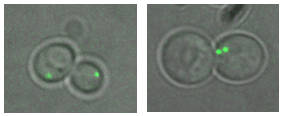Double strand break repair and Genome Integrity Team
This team belongs to the UMR 9019 Genome Integrity and Cancers.
DNA double-strand break (DSB) repair is a crucial step in preserving genome integrity. Failure to repair or incorrect repair can generate chromosomal alterations (chromosome loss, duplications, deletions, or translocations) and lead to tumorigenesis. The team’s biological questions are centered in the understanding at the mechanistic level of the main pathways used to repair DNA double-strand breaks and replication stalling lesions in cells.
The team is organized in two poles of activity, one using Electron Microscopy (EM) approaches and molecular imaging to study reconstituted biochemical reaction of DNA repair, and another building in vivo systems and exploiting genetics and molecular biology methods from cells. Among these multiple approaches, the team has recently developed a methodology to characterize DNA intermediates by EM after enrichment from cells. Recently, we have also developed a Cryo-EM expertise to solve structures of relevant DNA-protein complexes in the context of the DNA repair pathways at the center of our scientific interests.

TEM image of a replication fork

Example of chromosome segregation and mis-segregation of yeast cells carrying a fluorescent label in chromosome VII
